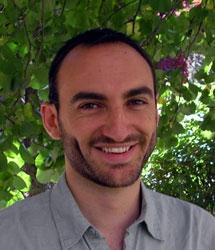Learning by doing: Ecosystem restoration training in the forests of Cercedilla
What does it take to design meaningful ecosystem restoration and carbon projects? Recently, a group of professionals from around the world gathered in Cercedilla (Madrid), Spain, to find out.
The three-day training, hosted by Preferred by Nature, offered a closer look at restoration planning within temperate ecosystems, linking ecological theory with hands-on work in the field. Set near the Sierra de Guadarrama National Park, the course combined indoor sessions with outdoor exercises to explore how restoration approaches can be adapted to different ecological, climatic and social conditions.
The training gathered 28 participants from across the Preferred by Nature network and beyond, representing countries such as Spain, Kenya, Côte d'Ivoire, Guatemala, and the United States. This international presence enriched the sessions with varied input and region-specific experiences, which encouraged cross-geographical exchanges.

This training followed a similar format to the training conducted in Malaysia’s Maliau Basin, but with a shift in context. While Maliau Basin offered immersion in a tropical rainforest, Cercedilla brought participants into a temperate mountain landscape that presents its own challenges – erosion, fire risk, and the history of long-term land use. The training provided fresh perspectives on how these strategies can be applied across different environmental contexts.
Connecting theory to practice
The course, based on our Ecosystem Restoration Standard, offered a comprehensive blend of general overview and technical depth by combining global experiences with real case studies from the field. Designed for professionals working in land use, forestry and conservation, it focused on ecosystem restoration and carbon-related aspects, including sequestration, accounting, and carbon project design.

Participants learned restoration principles through classroom-based sessions and applied their knowledge during hands-on field activities in Cercedilla’s surrounding landscapes. These exercises provided context-specific insights into the challenges and opportunities of restoring temperate ecosystems.
“The training gave me a solid understanding of how ecosystem restoration projects are evaluated and how they link to the carbon market. The practical exercises really helped reinforce the content and created space to connect with others. And the dancing breaks? A brilliant way to recharge!”
Sasha Vasconcelos
Instituto Politécnico de Bragança
A core part of the course emphasised integrating local stakeholders and considering social and economic factors when planning restoration projects. With the right approach, restoration not only enhances biodiversity but also puts in the centre long-term social, economic and environmental benefits for communities.

Why it matters
Restoration is more than just the simple act of planting trees. It requires long-term thinking, credible data, and active community engagement. This training provided participants with the skills and knowledge to design and implement restoration projects that can significantly impact both local and global scales.
“The week offered a great mix of learning and exchange. The sessions helped me feel more confident about ecosystem restoration and carbon project development, while the relaxed and friendly atmosphere made it easy to engage and share experiences with others,” said Augustin Lespinet, a participant from Reforest’Action.

This training is part of Preferred by Nature’s ongoing contribution to the global efforts of the UN Decade on Ecosystem Restoration. Through capacity building, knowledge exchange, and practical engagement, we aim to support meaningful restoration work across diverse landscapes.
“Through our Ecosystem Restoration Programme, we strive to equip practitioners with the necessary tools and knowledge to implement effective, science-based restoration projects. It’s inspiring to see participants engage deeply with both the technical aspects and the real-world applications of restoration, but especially to see them realise how important it is to consider the social component as well.”
Mateo Cariño Fraisse
Senior Manager - Land Use Programme at Preferred by Nature

More opportunities for professional development
Following the success of the Cercedilla training, we are planning another course in the same location for 2-4 December 2025. We are also finalising dates for the next training in Maliau Basin. These courses offer a valuable opportunity to deepen both technical knowledge and practical skills in the rapidly developing field of ecosystem restoration.
Photos by Mateo Cariño Fraisse / Preferred by Nature
Stay updated on our upcoming courses by checking our training calendar.
For more information on our related services, visit our webpages on:




